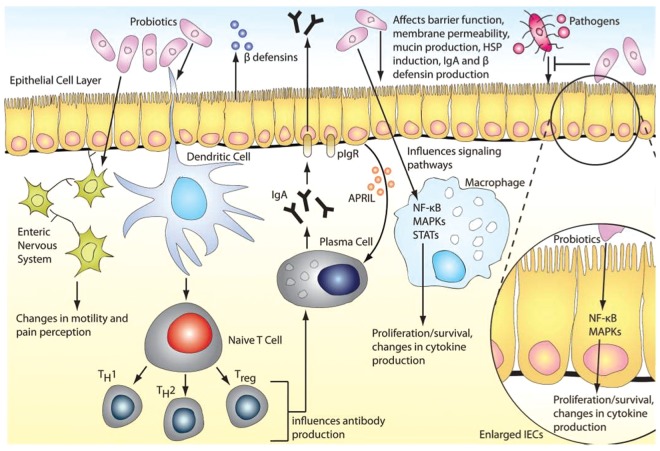Figure 3.
Probiotic mechanisms in the human gastrointestinal tract. Probiotics may manipulate intestinal microbial communities and suppress growth of pathogens by inducing the host’s production of β-defensin and IgA. Probiotics may be able to fortify the intestinal barrier by maintaining tight junctions and inducing mucin production. Probiotic-mediated immunomodulation may occur through mediation of cytokine secretion through signaling pathways such as NFκB and MAPKs, which can also affect proliferation and differentiation of immune cells (such as T cells) or epithelial cells. Gut motility and nociception may be modulated through regulation of pain receptor expression and secretion of neurotransmitters. APRIL, a proliferation-inducing ligand; hsp, heat shock protein; IEC, intestinal epithelial cell; Ig, immunoglobulin; MAPK, mitogen-activated protein kinase; NFκB, nuclear factor-kappaB; pIgR, polymeric immunoglobulin receptor; STAT, signal transducer and activator of transcription; Treg, T regulatory cell. (Reproduced with permission from Thomas and Versalovic [2010].)

